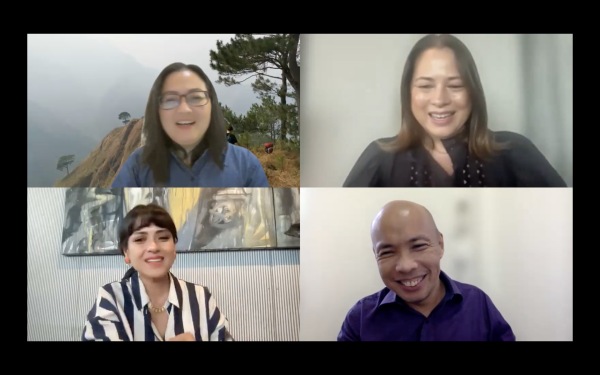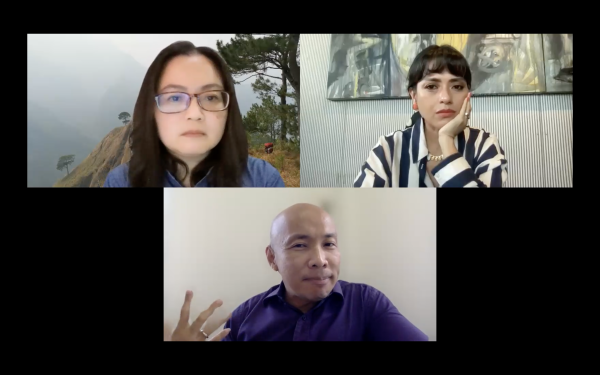Orientalism and the Filipino Identity: Reclaiming Our Own Narrative
by Gavin Perez
April 26, 2023, Manila ⏤ The Philippines is known for its vibrant culture and diverse ethnic heritage. Resulting from centuries of trade, colonization, and migration, the Filipino identity has been shaped by various cultural influences—such as Malay, Chinese, Spanish, and American cultures. With such a uniquely constructed identity, it is essential to understand our rich and complex history in order to then appreciate and celebrate our country and its people.
In ‘The Making of the Other: Orientalism and the Filipino Identity’, Asia Society Philippines, in partnership with Manila House, sat down with experts to discuss how the conceptualization of the Orient has impacted the Filipino identity, and how we can reconcile this Western concept with our self-determination. Moderated by Bambina Olivares, Programme Director of Manila House Private Members Club, together with Wawi Navarroza, Rommel A. Curaming, PhD, and Carmelea Ang See, the panel discussion explored the relevance of Orientalism in the contemporary world, its significance to the Philippines, and how we can rethink the concept so as to construct an empowered Filipino identity.
With a focus on exploring the self and surrounding through art, Wawi Navarroza is an international award-winning Filipino contemporary photography artist. She is informed by tropicality within the dynamics of post-colonial dialogue, globalization, and the artist as a transnational agent. Navarroza emphasized the importance of reimagining the Orientalist perspective to transform it from a backward view of the East to an identity empowered by uniqueness. In her discussion, Navarroza cited how her works depict the Filipino identity incorporating details and elements typical in the ‘Oriental’ or ‘Asian’ tropes, such as in ‘La Bruja’ and ‘Remember Who You Are’. Her works challenge the binary way of thinking in the East-West paradigm of Orientalism. As Navarroza put it, this is her way of dealing with the historical post-colonial trauma and subverting the tropes. Navarroza’s response to Orientalism is to reclaim the Filipino identity through learning and unlearning these preconceived notions, and to continuously question the assumptions that have been attached to our very nature.
Also among the panel was Rommel A. Curaming, PhD, Deputy Dean (Graduate Studies and Research) of the Faculty of Arts and Social Science, History & International Studies Programme, University of Brunei Darussalam. Curaming highlighted the political aspect—the interplay between knowledge and power on the post-colonial impacts of Orientalism in the Philippines. Curaming mentioned the ‘systematicity’ of Orientalism and how it perpetuates the way the West looks down on the East. Curaming moreover underscored the many changes around the globe since the first conceptualization of Orientalism. The present Asia is different from these notions of the ‘Orient’ associated with backwardness and lack in economic development. There has been a vast reconfiguration of power on a global scale. Curaming ultimately called for a rethinking of Orientalism: that we must go beyond binaries and hierarchies.
Carmelea Ang See touched on the multifaceted process of identity-building amidst all these external factorsm from the perspective of the Chinese-Filipino identity. Ang See is the Director of Bahay Tsinoy, Museum of Chinese in Philippine Life, and a past president of Chinese-Filipino organization, Kaisa Para Sa Kaunlaran, and her work in the fields of culture and education spans 20 years. Exploring Curaming’s ideas from the perspective of the Chinese-Filipino ethnic minority in the Philippines, Ang See stated how the interplay of power relations indeed shaped the Chinese-Filipino identity into a solidified Filipino identity. She also shared the history of ‘Oriental’ views which discriminated against the Chinese, who then found acceptance in the Philippines that ultimately led to a nationalist Chinese-Filipino identity. Ang See’s foremost point was the key role of the power of Filipino culture to accept this community of foreign others as their very own.
The panel also answered questions from the audience—covering subjects such as the formation of an authentic Filipino identity, the persistence of hierarchies under the Orientalist perspective, cultural appropriation, the rise of popular culture, and questions on the possibility of a globalized identity.
‘The Making of the Other: Orientalism and the Filipino Identity’ revolved around the richness of Philippine culture and ethnic diversity, with a robust discussion on how might we, as Filipinos, rethink the Orientalist perspectives and in turn create a self-determined identity that challenges external and internal prejudice.
The discussion was supported by the following partner universities: UST Asian Studies Society, LPU College of International Relations, DLSU College of Liberal Arts, and ADMU Department of History.

